The Monk, Revised
Her fists a blur as they deflect an incoming hail of
arrows, a half-elf springs over a barricade and throws
herself into the massed ranks of hobgoblins on the other
side. She whirls among them, knocking their blows aside
and sending them reeling, until at last she stands alone.
Taking a deep breath, a human covered in tattoos settles into a battle stance. As the first charging orcs reach him, he exhales and a blast of fire roars from his mouth, engulfing his foes.
Moving with the silence of the night, a black-clad halfling steps into a shadow beneath an arch and emerges from another inky shadow on a balcony a stone's throw away. She slides her blade free of its cloth-wrapped scabbard and peers through the open window at the tyrant prince, so vulnerable in the grip of sleep.
Whatever their discipline, monks are united in their ability to magically harness the energy that flows in their bodies. Whether channeled as a striking display of combat prowess or a subtler focus of defensive ability and speed, this energy infuses all that a monk does.
The magic of Ki
Monks make careful study of a magical energy that most monastic traditions call ki. This energy is an element of the magic that suffuses the multiverse - specifically, the element that flows through living bodies. Monks harness this power within themselves to create magical effects and exceed their bodies' physical capabilities, and some of their special attacks can hinder the flow of ki in their opponents. Using this energy, monks channel uncanny speed and strength into their unarmed strikes. As they gain experience, their martial training and their mastery of ki gives them more power over their bodies and the bodies of their foes.
Training and Asceticism
Small walled cloisters dot the landscapes of the worlds of D&D, tiny refuges from the flow of ordinary life, where time seems to stand still. The monks who live there seek personal perfection through contemplation and rigorous training. Many entered the monastery as children, sent to live there when their parents died, when food couldn't be found to support them, or in return for some kindness that the monks had performed for their families.
Some monks live entirely apart from the surrounding population, secluded from anything that might impede their spiritual progress. Others are sworn to isolation, emerging only to serve as spies or assassins at the command of their leader, a noble patron, or some other mortal or divine power.
The majority of monks don't shun their neighbors, making frequent visits to nearby towns or villages and exchanging their service for food and other goods. As versatile warriors, monks often end up protecting their neighbors from monsters or tyrants. For a monk, becoming an adventurer means leaving a structured, communal lifestyle to become a wanderer. This can be a harsh transition, and monks don't undertake it lightly.
Those who leave their cloisters take their work seriously, approaching their adventures as personal tests of their physical and spiritual growth. As a rule, monks care little for material wealth and are driven by a desire to accomplish a greater mission than merely slaying monsters and plundering their treasure.
Creating a Monk
As you make your monk character, think about your connection to the monastery where you learned your skills and spent your formative years. Were you an orphan or a child left on the monastery’s threshold? Did your parents promise you to the monastery in gratitude for a service performed by the monks? Did you enter this secluded life to hide from a crime you committed? Or did you choose the monastic life for yourself?
Consider why you left. Did the head of your monastery choose you for a particularly important mission beyond the cloister? Perhaps you were cast out because of some violation of the community’s rules. Did you dread leaving, or were you happy to go? Is there something you hope to accomplish outside the monastery? Are you eager to return to your home?
As a result of the structured life of a monastic community and the discipline required to harness ki, monks are almost always lawful in alignment.
Quick Build
You can make a monk quickly by following these suggestions. First, make Dexterity your highest ability score, followed by Wisdom. Second, choose the hermit background.


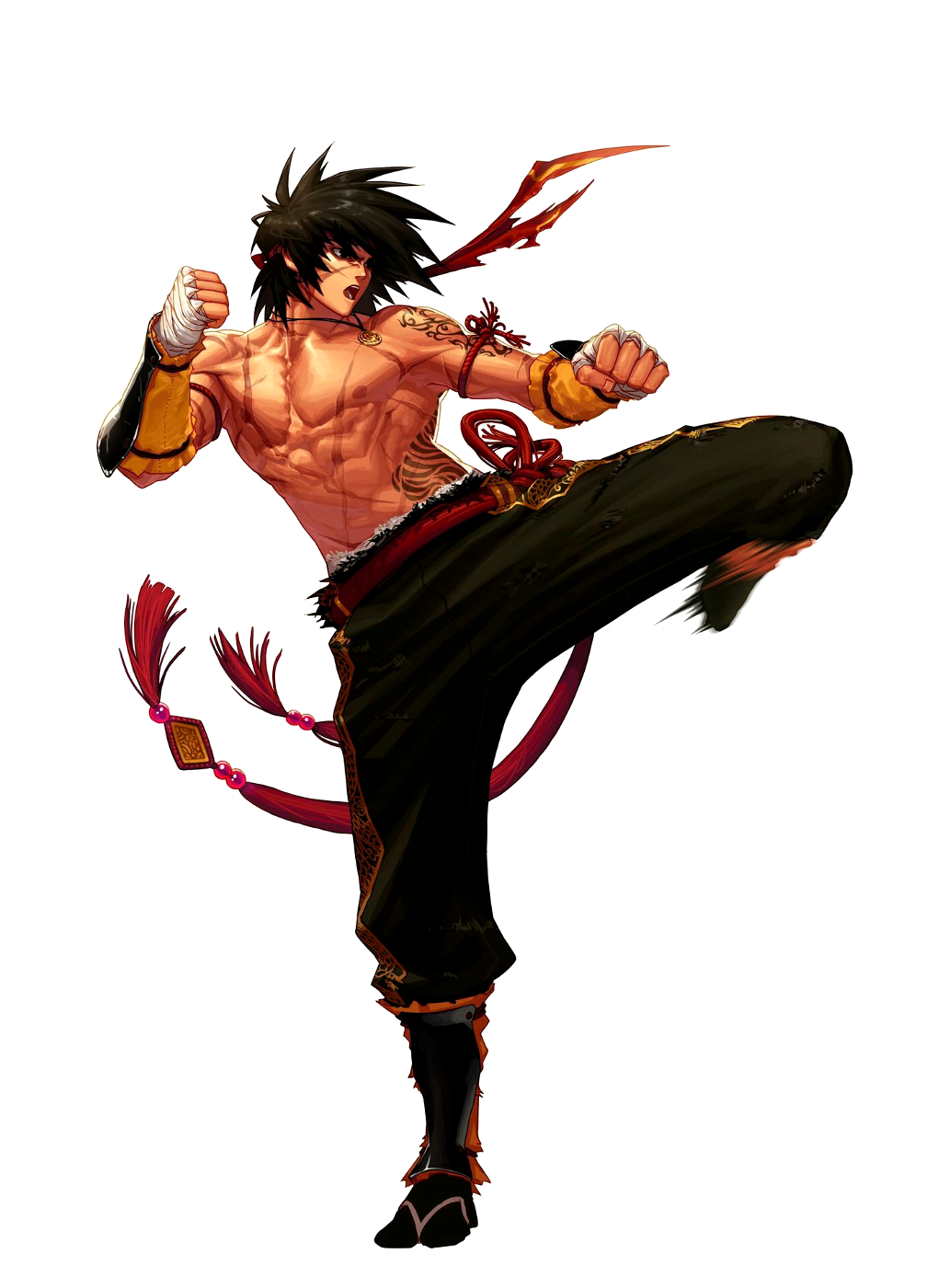
The Monk
| Level | Proficiency Bonus |
Martial Arts |
Ki Points |
Unarmored Movement |
Heightened Reflexes |
Features |
|---|---|---|---|---|---|---|
| 1st | +2 | 1d4 | — | — | — | Unarmored Defense, Martial Arts |
| 2nd | +2 | 1d4 | 2 | +10 ft. | — | Dedicated Weapon, Ki, Unarmored Movement |
| 3rd | +2 | 1d4 | 3 | +10 ft. | 2 | Monastic Tradition, Heightened Reflexes |
| 4th | +2 | 1d4 | 4 | +10 ft. | 2 | Ability Score Improvement, Quickened Healing |
| 5th | +3 | 1d6 | 5 | +10 ft. | 3 | Extra Attack, Extra Reaction |
| 6th | +3 | 1d6 | 6 | +15 ft. | 3 | Ki-Empowered Strikes, Monastic Tradition Feature |
| 7th | +3 | 1d6 | 7 | +15 ft. | 3 | Evasion, Stillness of Mind |
| 8th | +3 | 1d6 | 8 | +15 ft. | 3 | Ability Score Improvement |
| 9th | +4 | 1d6 | 9 | +15 ft. | 3 | Unarmored Movement Improvement |
| 10th | +4 | 1d6 | 10 | +20 ft. | 3 | Purity of Body |
| 11th | +4 | 1d8 | 11 | +20 ft. | 4 | Monastic Tradition Feature, Extra Reaction (2) |
| 12th | +4 | 1d8 | 12 | +20 ft. | 4 | Ability Score Improvement |
| 13th | +5 | 1d8 | 13 | +20 ft. | 4 | Tongue of the Sun and Moon |
| 14th | +5 | 1d8 | 14 | +25 ft. | 4 | Diamond Soul |
| 15th | +5 | 1d8 | 15 | +25 ft. | 4 | Timeless Body |
| 16th | +5 | 1d8 | 16 | +25 ft. | 4 | Ability Score Improvement |
| 17th | +6 | 1d10 | 17 | +25 ft. | 5 | Monastic Tradition, Extra Reaction (3) |
| 18th | +6 | 1d10 | 18 | +30 ft. | 5 | Empty Body |
| 19th | +6 | 1d10 | 19 | +30 ft. | 5 | Ability Score Improvement |
| 20th | +6 | 1d10 | 20 | +30 ft. | 5 | Perfect Self |
Optional Rule: Multiclassing
If your group uses this optional rule, here's what you need to know if you choose the monk as one of your classes.
Ability Score Minimum. You must have a Dexterity and Wisdom score of at least 13 to take a level in this class, or to take a level in another class if you are already a monk.
Proficiencies Gained. If monk isn't your initial class, you gain proficiency with simple weapons and shortswords when you take your first level in monk.
Class Features
Hit Points
- Hit Dice: 1d8 per monk level
- Hit Points at 1st Level: 8 + your Constitution modifier.
- Hit Points at Higher Levels: 1d8 (or 5) + your Constitution modifier per monk level after 1st
Proficiencies
- Armor: None
- Weapons: simple weapons, claw bracers, jians, shortswords, war fans
- Tools: Choose one type of artisan’s tools or one musical instrument
- Saving Throws: Strength, Dexterity
- Skills: Choose two from Acrobatics, Athletics, History, Insight, Perception, Religion, and Stealth
Equipment
You start with the following equipment, in addition to the equipment granted by your background.
- (a) a jian or (b) any simple weapon
- (a) a dungeoneer's pack or (b) an explorer's pack
- (a) a war fan or (b) 10 darts


Unarmored Defense
Beginning at 1st level, while you are wearing no armor and not wielding a shield, your AC equals 10 + your Dexterity modifier + your Wisdom modifier.
Martial Arts
At 1st level, your practice of martial arts gives you mastery of combat styles that use unarmed strikes and monk weapons, which are claw bracers, jians, shortswords, war fans, and any simple melee weapons that don’t have the two-handed or heavy property.
You gain the following benefits while you are unarmed or wielding only monk weapons and you aren’t wearing armor or wielding a shield:
- You can use Dexterity instead of Strength for the attack and damage rolls of your unarmed strikes and monk weapons.
- You can roll a d4 in place of the normal damage of your unarmed strike or monk weapon. This die changes as you gain monk levels, as shown in the Martial Arts column of the Monk table.
- When you use the Attack action with an unarmed strike or a monk weapon on your turn, you can make one unarmed strike as a bonus action. For example, if you take the Attack action and attack with a quarterstaff, you can also make an unarmed strike as a bonus action, assuming you haven't already taken a bonus action this turn.
Certain monasteries use specialized forms of the monk weapons. For example, you might use a club that is two lengths of wood connected by a short chain (called a nunchaku) or a sickle with a shorter, straighter blade (called a kama). Whatever name you use for a monk weapon, you can use the game statistics provided for the weapon.
Unarmored Movement
Starting at 2nd level, your speed increases by 10 feet while you are not wearing armor or wielding a shield. This bonus increases when you reach certain monk levels, as shown in the Monk table.
At 9th level, you gain the ability to move along vertical surfaces and across liquids on your turn without falling during the move.
Ki
Starting at 2nd level, your training allows you to harness the mystic energy of ki. Your access to this energy is represented by a number of ki points. Your monk level determines the number of points you have, as shown in the Ki Points column of the Monk table.
You can spend these points to fuel various ki features. You start knowing three such features: Flurry of Blows, Patient Defense, and Step of the Wind. You learn more ki features as you gain levels in this class.
When you spend a ki point, it is unavailable until you finish a short or long rest, at the end of which you draw all of your expended ki back into yourself. You must spend at least 30 minutes of the rest meditating to regain your ki points.
If you spend 1 ki point or more as part of your action on your turn, you can make one attack with an unarmed strike or a monk weapon as a bonus action before the end of the turn.
Some of your ki features require your target to make a saving throw to resist the feature’s effects. The saving throw DC is calculated as follows:
Ki save DC
Flurry of Blows
Immediately after you take the Attack action on your turn, you can spend 1 ki point to make two unarmed strikes as a bonus action.
Patient Defense
You can spend 1 ki point to take the Dodge action as a bonus action on your turn.
Step of the Wind
You can spend 1 ki point to take the Disengage or Dash action as a bonus action on your turn, and your jump distance is doubled for the turn.
Dedicated Weapon
Also at 2nd level, you train yourself to use a variety of weapons as monk weapons. Whenever you finish a short or long rest, you can touch one weapon, focus your ki on it, and then count that weapon as a monk weapon until you use this feature again. You must be proficient with the chosen weapon, and it cannot have the heavy and special properties.


Heightened Reflexes
In your practice of the martial arts, you have improved your reflexes beyond the norm. You have trained to respond to certain events with startling haste.
At 3rd level, you gain two Heightened Reflexes of your choice. A list of the available options can be found at the end of this class. When you gain certain monk levels, you gain additional reflexes of your choice.
Additionally, when you gain a level in this class, you can choose one of the reflexes you know and replace it with another reflex that you could learn at that level. A level prerequisite in a reflex refers to monk level, not character level.
Monastic Tradition
When you reach 3rd level, you commit yourself to a monastic tradition: the Way of the Open Hand, the Way of the Argent Fist, the Way of the Ascendant Dragon, the Way of the Heaven Piercer, the Way of Reclamation, the Way of the Rime Warden, the Way of the Serpent, the Way of the Still Tide, the Way of the Sun Soul, or the Way of the Four Elements, all detailed at the end of the class description. Your tradition grants you features at 3rd level and again at 6th, 11th, and 17th level.
Ability Score Improvement
When you reach 4th level, and again at 8th, 12th, 16th, and 19th level, you can increase one ability score of your choice by 2, or you can increase two ability scores of your choice by 1. As normal, you can’t increase an ability score above 20 using this feature.
Quickened Healing
At 4th level, you gain the ability to use ki to stimulate healing in your body. As an action, you can spend a ki point to spend and roll one of your Hit Die. You regain a number of hit points equal to the number rolled plus your Wisdom modifier.
Extra Attack
Beginning at 5th level, you can attack twice, instead of once, whenever you take the Attack action on your turn.
Extra Reaction
Beginning at 5th level, you can can use a reaction up to twice before the start of your next turn. You can only use one reaction to a given trigger. If a feature or effect would prevent you from taking reactions but does not incapacitate you, you instead lose one use of your reaction for the duration of the effect.
The number of times you can use a reaction in between the start of your turns increases to three when you reach 11th level in this class and to four when you reach 17th level in this class.
If you gain the ability to use extra reactions from another source, you choose which feature to benefit from.
Ki-Empowered Strikes
Starting at 6th level, your unarmed strikes count as magical for the purpose of overcoming resistance and immunity to nonmagical attacks and damage.
Evasion
At 7th level, your instinctive agility lets you dodge out of the way of certain area effects, such as a blue dragon’s lightning breath or a fireball spell. When you are subjected to an effect that allows you to make a Dexterity saving throw to take only half damage, you instead take no damage if you succeed on the saving throw, and only half damage if you fail.
Stillness of Mind
Starting at 7th level, you can use your action to end one effect on yourself that is causing you to be charmed or frightened.
Purity of Body
At 10th level, your mastery of the ki flowing through you makes you immune to disease and poison.
Tongue of the Sun and Moon
Starting at 13th level, you learn to touch the ki of other minds so that you understand all spoken languages. Moreover, you can choose to let any creature understand you if they can understand a language.


Diamond Soul
Beginning at 14th level, your mastery of ki grants you proficiency in all saving throws.
Additionally, whenever you make a saving throw and fail, you can use a reaction and spend 1 ki point to reroll it. You must take the second result.
Timeless Body
At 15th level, your ki sustains you so that you suffer none of the frailty of old age, and you can’t be aged magically. You can still die of old age, however. In addition, you no longer need food or water, and you can hold your breath for a number of hours equal to half of your monk level.
Empty Body
Beginning at 18th level, you can use your action to spend 4 ki points to become invisible for 1 minute. During that time, you also have resistance to all damage but force damage.
Additionally, you can spend 8 ki points to cast the astral projection spell, without needing any components. When you do so, you can’t take any other creatures with you.
Perfect Self
At 20th level, when you roll for initiative and have no ki points remaining, you regain 4 ki points. Additionally, whenever you spend and roll a Hit Die to restore hit points, you double the number it restores.
Heightened Reflexes
Listed below are the heightened reflexes available to a monk. If a reflex has prerequisites, you must meet them to learn it. A level prerequisite refers to your monk level. You can learn a reflex at the same time that you meet its prerequisites. Any DCs listed use your Ki save DC unless otherwise stated.
Deflect Missiles
This reaction allows you to deflect or catch the missile when you are hit by a ranged weapon attack. When you do so, the damage you take from the attack is reduced by 1d10 + your Dexterity modifier + your monk level.
If you reduce the damage to 0, you can catch the missile if it is small enough for you to hold in one hand and you have at least one hand free. If you catch a missile in this way, you can spend 1 ki point to make a ranged attack with the weapon or piece of ammunition you just caught, as part of the same reaction. You make this attack with proficiency, regardless of your weapon proficiencies, and the missile counts as a monk weapon for the attack, which has a normal range of 20 feet and a long range of 60 feet.
Gentle Palm
You've mastered the art of narrowly deflecting incoming blows. Whenever another creature hits you with a melee attack, you can use your reaction to add +2 to your AC for that attack, potentially causing the attack to miss you.
Hawk Seeks Prey
Hiding from your keen senses becomes all but impossible. Whenever a creature within 60 feet of you that you are aware of attempts to Hide, you may use a reaction to take the Search action and search for them.
Slow Fall
You can use your reaction when you fall to reduce any falling damage you take by an amount equal to five times your monk level. If you still take fall damage from the triggering fall, it does not knock you prone.
Bear Watches Over
Prerequisite: 5th level
You become a retaliatory force on the battlefield. Whenever a creature within your reach attacks an ally, you can use your reaction to make an unarmed strike against the attacking creature.
Cascading Strikes
Prerequisite: 5th level
When you successfully land both attacks granted by your Flurry of Blows, you may spend an additional ki point to make a third unarmed strike as a reaction, which counts as an attack granted by Flurry of Blows for the purposes of other features.
Focused Aim
Prerequisite: 5th level
You focus your perception to the very instant you make your attack, making minute adjustments to assure the blow hits. When you miss with an attack roll, you can spend 1 to 3 ki points to increase your attack roll by 2 for each of these ki points you spend, potentially turning the miss into a hit.
Monkey Step
Prerequisite: 5th level
You become difficult to pin down during a fight. You can move up to half your movement speed as a reaction when an enemy ends its turn within 5 feet of you. This movement doesn't provoke opportunity attacks.
Tiger Pounces
Prerequisite: 5th level
Your predatory instincts keep your opponents from escaping. Whenever a hostile creature moves out of your reach, you can use your reaction to leap up to half your movement speed towards them, landing in an unoccupied space adjacent to the target. This movement doesn't provoke opportunity attacks. The creature must then succeed on a Strength saving throw, or be knocked prone.
Panther Stalks the Quarry
Prerequisite: 11th Level
When you are forcibly moved, if the source of the effect was an adjacent creature, you can use a reaction to spend 2 ki and force that creature to make a Strength saving throw or be moved the same distance along side you. If the triggering creature is grappled by you, this movement does not break the grapple.
Part the Weave
Prerequisite: 11th level
Your knowledge of magic and its users allows you to react swiftly to their machinations, and even use your ki to disrupt their work. Whenever a creature within your reach begins casting a spell, you can spend 3 ki points to make an unarmed strike against them as a reaction. On a hit, they take damage as normal, and you attempt to disrupt the spell's magic. If the creature is casting a spell of 3rd level or lower, its spell fails and has no effect. If it is casting a spell of 4th level or higher, make a Wisdom ability check. The DC is equal to 10 + the spell's level. On a success, the creature's spell fails and has no effect.
Snake Strike
Prerequisite: 11th level
You learn to strike like a cobra at any openings your enemies present. Whenever a creature misses you with a melee attack roll, you can use your reaction to make an unarmed strike against them.
Turn the Tide
Prerequisite: 11th level
This reaction lets you spend 1 ki point to divert the force of a melee weapon attack you are hit by. When you do so, the damage you take from the attack is reduced by 1d10 + your Dexterity modifier + your monk level.
If you reduce the damage to 0, you can divert the attack completely if you have at least one hand free. If you divert an attack in this way, you can spend 1 ki point to make an unarmed strike against the attacking creature as part of the same reaction.
Flash Focus Defense
Prerequisite: 17th Level
Your focus hones to a razor's edge, helping you roll with punches before they are even thrown. When an attacker that you can see hits you with an attack, you can use your reaction to halve the attack's damage against you.
Specter Haunts the Spirit
Prerequisite: 17th Level
As a reaction when you or another creature within 30 feet of you teleports or is shunted to another plane of existance, if the source of the effect was created by a creature, you may spend 4 ki points to attune to their ki and also be shunted, appearing in an unoccupied space nearest to the target.
Still Lake's Surface
Prerequisite: 17th Level
When a creature within your reach begins to activate a magical effect, you may use your reaction to expend 5 ki and totally sever their connection to the weave. The target must succeed on a Charisma saving throw, or the triggering effect fails and is wasted. Moreover, on a failed save, the target loses the ability to cast spells and ongoing magical effects (other than this one) on the creature are suppressed until the start of your next turn. The powers and properties of magic items in the target's possession are suppressed until the start of your next turn.
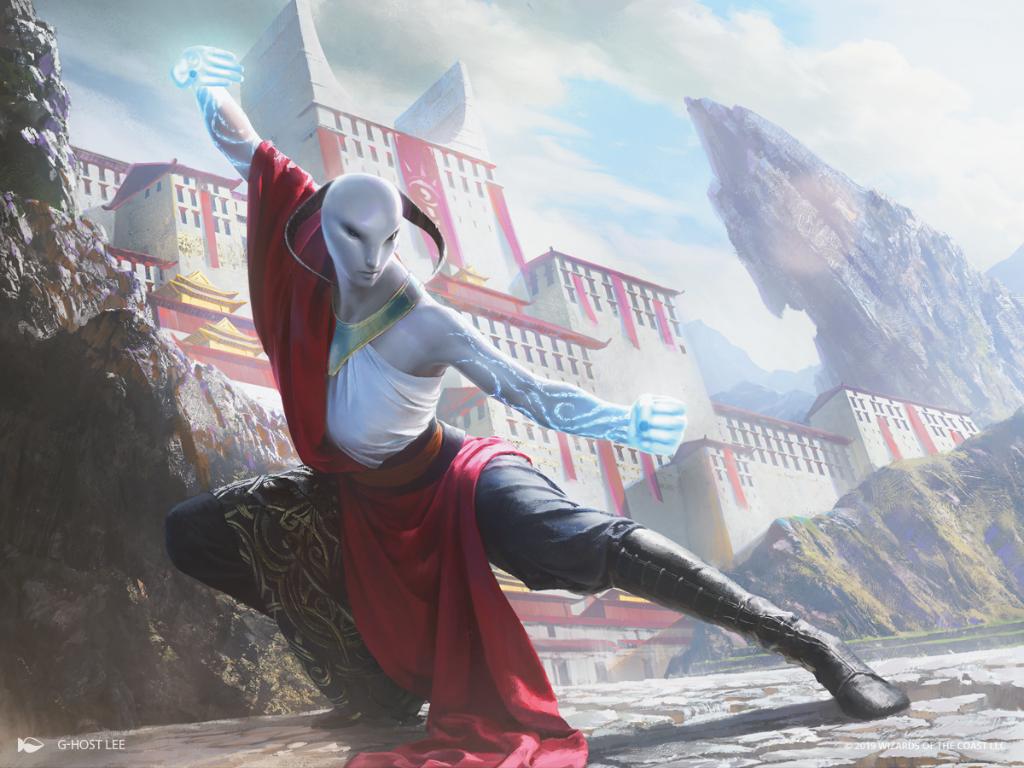

Monastic Traditions
There are myriad traditions of monastic pursuit that are common in the monasteries scattered across the multiverse. Most monasteries practice one tradition exclusively, but a few honor many traditions and instruct each monk according to his or her aptitude and interest. The vast majority of traditions rely on the same basic techniques, diverging as the student grows more adept. Thus, a monk need choose a tradition only upon reaching 3rd level.
Way of the Open Hand
Monks of the Way of the Open Hand are the ultimate masters of martial arts combat. They learn techniques to push and trip their opponents, manipulate ki to heal their bodies, and practice advanced meditation that shields them from harm.
Open Hand Technique
Starting when you choose this tradition at 3rd level, you can manipulate your enemy's ki when you harness your own. Whenever you hit a creature with one of the attacks granted by your Flurry of Blows, you can impose one of the following effects on that target:
- It must succeed on a Dexterity saving throw or be knocked prone.
- It must make a Strength saving throw. If it fails, you can push it up to 15 feet away from you.
- It can’t take reactions until the end of your next turn.
Wholeness of Body
At 6th level, you gain the ability to heal yourself. As an action, you can regain hit points equal to thrice your monk level. You must finish a long rest before you can use this feature again. Additionally, when you use your Quickened Healing feature, you can expend a number of hit dice up to half of your monk level as a part of the action. You add your Wisdom modifier to each hit die, and regain hit points equal to the total.
Tranquility
Beginning at 11th level, you can enter a special meditation that surrounds you with an aura of peace. At the end of a short or long rest, you gain the effect of a sanctuary spell that lasts until the start of your next short or long rest (the spell can end early as normal). The saving throw DC for the spell is equal to your ki save DC.
Quivering Palm
At 17th level, you gain the ability to set up lethal vibrations in someone’s body. When you hit a creature with an unarmed strike, you can spend 3 ki points to start these imperceptible vibrations, which last for a number of days equal to your monk level. The vibrations are harmless unless you use your action to end them. To do so, you and the target must be on the same plane of existence. When you use this action, the creature must make a Constitution saving throw. If it fails, it is reduced to 0 hit points. If it succeeds, it takes 10d10 necrotic damage.
You can have only one creature under the effect of this feature at a time. You can choose to end the vibrations harmlessly without using an action.


Way of the Argent Fist
The Argent Fist uses ki energy to channel radiant power, healing the injured and blasting unclean creatures. In the world of Eberron, this tradition was first mastered by followers of the Silver Flame, and the the Silver Forge has a number of fortress monasteries spread across Thrane. However, a follower of the Way of the Argent Fist could also be a champion of gods of light such as Liphan, Branchalla, Helm, or Apollo, or simply a monk trained in combat against horrors of the world.
Balm of the Argent Fist
Starting when you choose this tradition at 3rd level, you can harness your ki to rekindle the flame represented within all life. You have a well of cleansing flame that replenishes when you take a long rest. With that well, you can restore a total number of hit points equal to your monk level multiplied by your Wisdom modifier.
As an action, you can touch a creature to draw power from that well to restore a number of hit points to that creature, up to the maximum amount remaining in your well.
This feature improves when you reach 11th level, when you can expend 5 hit points from your well of cleansing flame to end one effect that is causing the creature to be charmed or frightened. You can cleanse multiple effects with a single use of Balm of the Flame, expending hit points separately for each one. The healing effects of this feature have no effect on undead and constructs.
Seek the Light
At 3rd level, whenever you hit a creature with one of the attacks granted by your Flurry of Blows, you can choose to make each fiend, monstrosity, or undead within 30 feet of you make a Wisdom saving throw against your Ki save DC. If the creature fails its saving throw, it is turned for 1 minute or until it takes damage.
A turned creature must spend its turns trying to move as far away from you as it can, and it can’t willingly move to a space within 30 feet of you. It also can’t take reactions. For its action, it can use only the Dash action or try to escape from an effect that prevents it from moving. If there is nowhere to move, the creature can use the Dodge action.
Once you use this feature, you can’t use it again until you finish a short or long rest. You can use this feature twice between rests starting at 11th level.
Wrath of the Argent
Beginning at 6th level, you can expend 2 ki points to wreath your fists or monk weapons in a sacred flame (no action required). For 1 minute, your fists shed bright light out to 10 feet, and dim light for another 10 feet. In addition, your monk weapon attacks and unarmed strikes deal an extra 1d4 radiant damage. When you hit a fiend, monstrosity, or undead the radiant damage increases to 2d4.
At 17th level, you can spend 4 ki points to increase this radiant damage to 2d4, and the damage to a fiend, monstrosity, or undead increases to 4d4.
Bound by Faith
Starting at 11th level, when you hit a fiend, monstrosity, or undead with an unarmed strike, you can expend 2 ki points to force the target to make a Wisdom saving throw or be bound for up to 1 minute. A bound target becomes blinded, deafened, and cannot speak or perform verbal components. The target repeats the saving throw at the end of each of its turns. On a success, the effect ends on the target.
Radiant Embrace
At 17th level, as an action, you stoke the embers within you into a torrent of holy fire. For 1 minute, you gain the following benefits:
- While you benefit from your Wrath of the Argent feature, you are immune to radiant damage.
- While you have at least 1 hit point, you gain hit points equal to your Wisdom modifier at the start each of your turns.
- When you deal radiant damage to a shapechanger with an unarmed strike or a monk weapon and they are not in their true form, they must make a saving throw against your Ki save DC or be forcibly reverted to their original form.
- Your monk weapon attacks and unarmed strikes score critical hits on a 19 or 20. Against a fiend, monstrosity, or undead creature, you score critical hits with your monk weapon attacks and unarmed strikes on a roll of 18-20.
- When you activate this effect, you can immediately use your bonus action to use your Flurry of Blows.
Once you use this feature, you can’t use it again until you finish a long rest, or until you use 5 ki to use it again.


Way of the Ascendant Dragon
Monks who follow the Way of the Ascendant Dragon revere the power and grandeur of dragons. They alter their own ki to resonate with draconic might, channeling it to augment their battle prowess, soar through the air, and bolster their allies.
As a follower of this Monastic Tradition, you decide how you unlocked the power of dragons through your ki. The Ascendant Dragon Origin table offers some possibilities.
| d6 | Origin |
|---|---|
| 1 | You honed your abilities by observing a dragon and aligning your ki with their world-altering power. |
| 2 | A dragon personally took an active role in shaping your inner energy. |
| 3 | You studied at a monastery that traces its teachings back centuries to a single dragon's instruction. |
| 4 | You spent long stretches meditating in the region of influence of an ancient dragon's lair, absorbing its ambient magic. |
| 5 | You found a scroll written in Draconic that contained inspiring new techniques. |
| 6 | After a dream that featured a five-handed half-dragon you awoke with altered ki, reflecting the breaths of dragons. |
Draconic Disciple
When you take this tradition at 3rd level, you learn to channel your draconic ki to imbue your unarmed strikes with the essence of a dragon's breath and to use your connection with draconic creatures to magnify your presence. You gain the following benefits:
- You can deal acid, cold, fire, lightning, or poison damage in place of the normal damage of your unarmed strikes.
- You learn to speak, read, and write Draconic.
- If you fail a Charisma (Intimidation) or Charisma (Persuasion) check, you can use your reaction to reroll the check, as you tap into the mighty presence of dragons. Once this feature turns a failure into a success, you can’t use it again until you finish a short or long rest.
Breath of the Dragon
Also beginning at 3rd level, you can channel your ki into destructive waves of energy like the dragons you emulate. When you take the Attack action on your turn, you can replace one of the attacks with an exhalation of draconic energy in either a 20-foot cone or a 30-foot line that is 5 feet wide (your choice). Choose a damage type: acid, cold, fire, lightning, or poison. Each creature in the area must make a Dexterity saving throw against your ki save DC, taking damage of the chosen type equal to two rolls of your Martial Arts die on a failure, or half as much damage on a success.
At 11th level, the damage of your breath increases to three rolls of your Martial Arts die.
You can use this feature a number of times equal to your Wisdom modifier (a minimum of once), and you regain all expended uses when you finish a long rest. While you have no uses available, you can spend 1 ki point to use it again.
Wings Unfurled
At 6th level, when you use your Step of the Wind, you can unfurl spectral draconic wings from your back that vanish at the end of your turn. While the wings exist, you have a flying speed equal to your walking speed.
You can use this feature a number of times equal to your Wisdom modifier (a minimum of once), and you regain all expended uses when you finish a long rest. While you have no uses available, you can spend 1 additional ki point when you activate Step of the Wind to use this feature again.
Aspect of the Wyrm
The power of your draconic ki now radiates from you, protecting your allies from harm and enhancing their own strikes. At 11th level, you can use a bonus action to create an aura of draconic power that radiates 30 feet from you for 1 minute. Choose acid, cold, fire, lightning, or poison damage, and for the duration, you gain the following effects:
- You and your allies within your aura gain resistance to the chosen damage type.
- When you or your ally hits with an attack that deals the chosen damage type to another creature in the aura, you can use your reaction to deal additional damage of that type equal to one roll of your Martial Arts die.
Once you use this feature, you can’t use it again until you finish a long rest, unless you expend 4 ki points to use it again.
Ascendant Aspect
At 17th level, your draconic ki reaches its peak. You gain the following benefits:
- You gain blindsight out to 30 feet.
- When a creature fails its saving throw against your Breath of the Dragon, the energy clings to the target. At the start of each of the creature's turns, it takes damage of the type your breath dealt equal to one roll of your Martial Arts die. At the end of its turn, the creature can repeat the save, ending the effect on itself on a success.
- When you activate your Aspect of the Wyrm, draconic fury explodes from you. Choose any number of creatures you can see within your aura. Those creatures each take 4d10 damage of the chosen type.


Way of the Heaven Piercer
Those that fall into the teachings of the heaven piercer are taught the way of willpower. Learn, adapt, evolve, and believe. One does succeeds not just by wanting to do so, but by believing that they will. Those that practice it are often travelers. They are difficult to hold down, because they
follow their heart, their dreams, and the will of their soul.
Monasteries that teach the way of the heaven piercer are often known for their reputations involving rather impulsive courses of action. Being first to act stand in the face of tyrants, or slaying incredible threats. Most notably of all, they are known for doing so with incredibly bad odds, and still come out on top.
“We evolve, beyond the person that we were a minute before. Little by little, we advance with each turn.
That's how a drill works!”
Do the Impossible
When you take this tradition at 3rd level, you gain the ability to harness the energy inside you to succeed when there seems to be no hope in sight of doing so. When you would fail an ability check or saving throw, you may use your reaction to spark the constantly turning energy inside you.
When you do this, you learn how far off your roll
was from the DC required to succeed.
When you do this, you can choose to spend a number
of ki points equal to half the difference between your roll
and the DC required to succeed
(rounded up) to choose to treat
your roll as a success.
See the
Invisible
Upon reaching 6th
level, your eyes pierce
with the fury of your soul.
Few can shy from your
gaze so long as your eyes
burn with the fire of
your soul. You can spend
2 ki points to cast the spell
see invisibility.
In addition to the normal benefits of the spells effects, when you cast see invisiblity in this way you also gain advantage on Wisdom (perception) checks made to detect hidden creatures for the duration of the spell.
Touch the Untouchable
Once you've reached level 11, you have learned the ability to force your towering energy into your strikes, and reach out at those who attempt to evade you. When you expend your energy, your inner willpower manifests as large spinning spears of energy on your hands and around your wrists.
When you expend a ki point in any way, for the next minute your unarmed strikes have their reach increased by 5 feet, and deal piercing damage instead of its normal damage type.
Break the Unbreakable
Finally at 17th level, your pure force of will is unimaginable. When you hit a creature with an attack, you may narrow all of your will to win to empower your strike and deal an extra 1d8 force damage for every ki point you have less than your maximum, as your incredible will is empowered the more dire the situation. You may use this ability once, and cannot do so again until you complete a long rest or are critically struck.
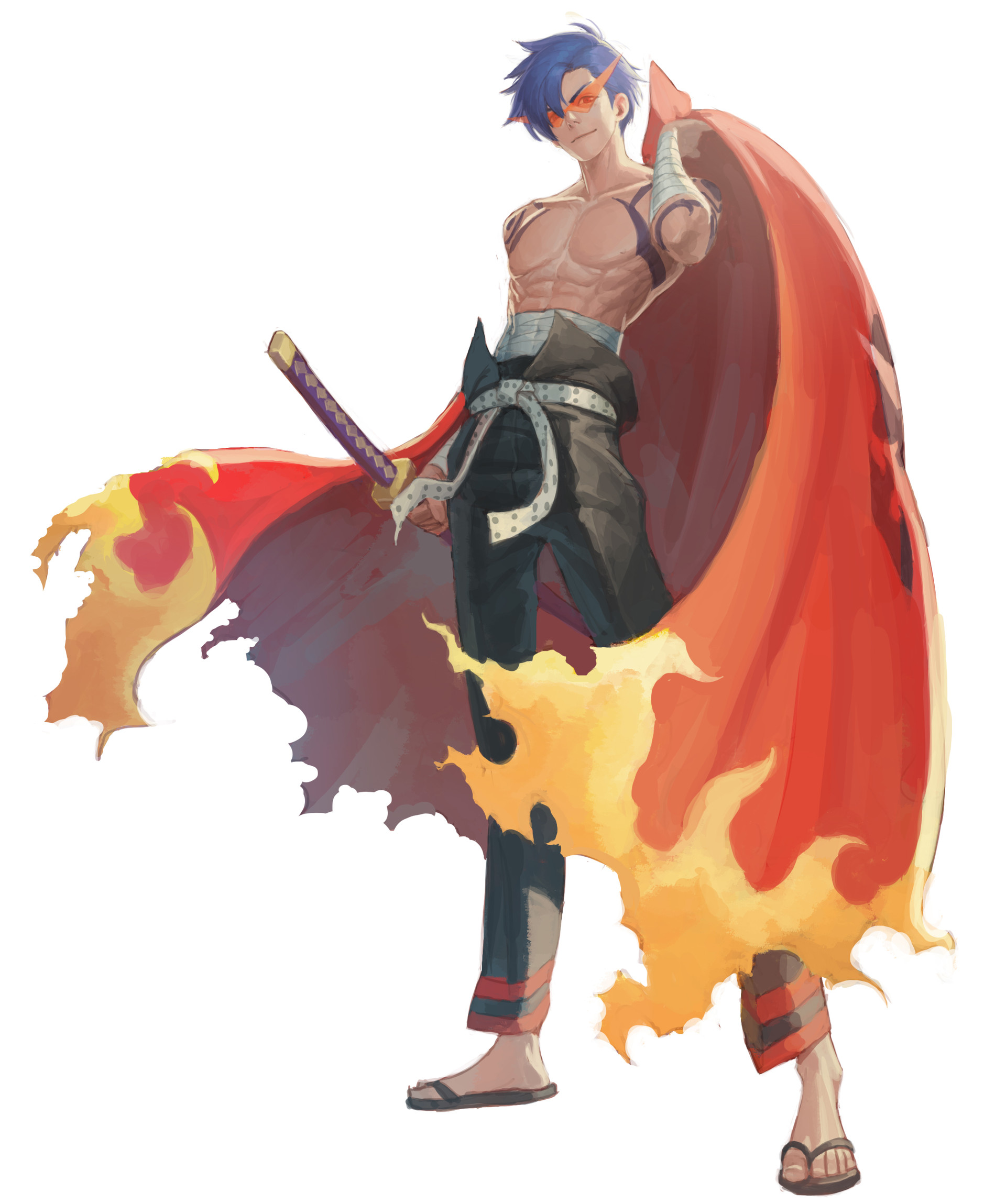
Way of the Rime Warden
In the frigid reaches of Antiflow Sedden, there exists a time honored monastic tradition, handed down since the founding of the nation of Kurai; the Way of the Rime Warden. The elder sages of the Kuranese monasteries teach that Kura himself developed this tradition to protect the explorers under his charge, and refined it by training in the presence of the great white dragon Kagen.
Followers of the Way of the Rime Warden train their bodies and minds in frigid conditions, manifesting a icy ki that they use to enhance their strikes and protect their allies.
Monks of this tradition are taught to be the sentinels of their society, protecting their communities from the vicious monsters that thrive in such adverse conditions.
Frigid Ki
When you adopt this tradition at 3rd level, you learn how to chill your ki to better suit the coldest stretches of the plane. You gain the following benefits.
Frigid Strikes. When you make an unarmed strike or an attack with a monk weapon, you can choose to make the damage cold instead of its normal type.
Reflexive Adaptation. When you take cold damage, you can use your reaction to spend 1 ki point to halve that instance of cold damage.
Tundra Traveler. You become naturally adapted to cold climates, granting you immunity to wilderness hazards associated with the cold, and the effects of extreme cold. Moreover, you ignore difficult terrain made of ice or snow.
Lessons of the Rime Warden
Also at 3rd level, you learn the ancient techniques necessary of the first Rime Warden. When you make your first attack on your turn, you can decide to channel your frost ki until the start of your next turn. While you channel your frost ki, hitting a creature with a Frigid Strike reduces the target's speed by 5 feet until the end of their next turn. If you hit a target whose speed has been reduced to 0 while you are channeling your frost ki, you can force the target to make a Constitution saving throw or become restrained until the end of their next turn.
You can use this feature a number of times equal to your Wisdom modifier (a minimum of once), and you regain all expended uses when you finish a long rest. While you have no more uses, you can spend 1 ki point to reuse this feature.
Additionally, you learn from the stories of the first Rime Warden. You gain proficiency in your choice of History, Persuasion or Survival.
Subzero Ki
By 6th level, your frigid ki becomes even more pure. Your Frigid Strikes ignore resistance to cold damage.
Additionally, you can use your Reflexive Adaptation on a willing creature within 30 feet of you when they take cold damage. If multiple creatures take cold damage from the same source, you can use multiple reactions for the same instance of cold damage, spending ki for each target.
Finally, when you channel your frost ki, you reduce the target's speed by 10 feet, instead of 5.
Frost Sentinel
At 11th level, you learn how to manipulate other's life energy to inure them. At the end of a long rest, you can choose a number of willing creatures within 30 feet of you, up to your Wisdom modifier. You and your chosen targets gain the benefit of your Tundra Traveler feature, and gain temporary hit points equal to your Wisdom modifier + your monk level. While a creature has these temporary hit points, the targets gain resistance to cold damage.
Additionally, when you channel your frost ki, you reduce the target's speed by 15 feet, instead of 10, and your Frigid Strikes treat immunity to cold damage as resistance instead.
Absolute Zero
By 17th level, you have refined your frigid ki to the point of perfection. You gain the following benefits.
- When you use your Reflexive Adaption, you grant the target immunity to cold damage, including against the triggering effect, until the start of your next turn.
- When you channel your frost ki, you reduce the target's speed by 20 feet instead of 15.
- Your Frigid Strikes ignore resistance and immunity to cold damage.
- Once per turn, when you hit a creature with a Frigid Strike, you can expend 2 ki points to completely sap the heat from them. The target must succeed on a Constitution saving throw or gain a level of exhaustion. Any levels of exhaustion gained in this way are removed if the creature completes a short or long rest, but only if they aren't in an environment of extreme cold. A creature who dies from exhaustion while they have a level of exhaustion from this feature freezes over. A corpse frozen in this way is considered an invalid target for the purposes of being revived or raised as an undead. The corpse can only be thawed by taking 50 fire damage from a single source.


Way of Reclamation
Healing and restoration magic may knit wounds or remove curses, but recovering from some trauma is a lifelong journey. These wounds run deep and affect how you develop as a person. Monks of this tradition focus on learning to cope with their wounds and emerge stronger because of it.
You may wish to work with your DM on how to integrate your character's trauma into their backstory. If you decided on this subclass later in the game, perhaps your character was in denial of the trauma's effects beforehand, or simply had not started on their healing path. You may also wish to consider how the stages of this subclass influence how you roleplay your character.
Bonus Proficiencies
When you choose this tradition at 3rd level, you begin to reflect more deeply on your experiences and find a creative outlet to channel your energy. You gain proficiency in Insight, or Performance if you already have proficiency with Insight. You also gain proficiency with one set of artisan's tools or one instrument.
Pain
Also at 3rd level, as you start your healing process, your wounds are more raw. You react to stress by lashing out - a sign that you are fighting through your struggles rather than surrendering to them.
As a reaction to being hit with a melee attack, you can spend 1 ki point to make a single unarmed strike at advantage.
Hope
At 6th level, even when things seem their darkest, you don't give into despair. If you succeed on a death saving throw, you can immediately regain 1 hit point. Once you use this ability, you can't use it again until you complete a long rest.
Acceptance
When you reach 11th level, you make peace with your trauma. You may not like the fact that you went through what you did, but you accept that it is now a part of you, and that it allowed you to grow from your experience.
You gain the Turn the Tide heightened reflex, which doesn't count against the number of reflexes you know. If you use Turn the Tide and reduce the incoming damage to 0, you can gain temporary hit points equal to your Wisdom modifier (minimum of 1) instead of spending ki to make an unarmed strike as a reaction. These temporary hit points are not removed at the end of a long rest, however you lose these temporary hit points if you ever use your reaction to make an unarmed strike as a part of Turn the Tide, or if you use your reaction to use your Pain feature.
Forgiveness
At 17th level, you reach the final stage of your journey - learning to show compassion and forgive those that wronged you, even if that person is yourself.
When you reduce a creature to 0 hit points and choose to do so nonlethally, you can cause it to no longer be a threat when it awakens. When you do so, the creature loses all features that allow it to deal damage or affect an unwilling creature (such as multiattack, heated body, or shapeshifting), weapon proficiencies, and spellcasting. Any natural weapons become improvised weapons that deal 1d4 damage, with no other effects. These effects can only be reversed by a surge of rejuvenation spell.
Additionally, the target is freed from any mind-altering effects it suffers from, such as madness or a geas spell.
Sparing a creature this way grants you temporary hit points equal to double its challenge rating or level (whichever is higher). These temporary hit points are not removed at the end of a long rest.
Finally, you have learned how to move on from your trauma, and not let it color your actions. You no longer lose the temporary hit points from your Acceptance feature if you use your reaction to make an unarmed strike as a part of Turn the Tide, or if you use your reaction to use your Pain feature.
Undoing the Effects of Forgiveness
The forgiveness feature mentions surge of rejuvenation, a mythic level spell, which can be found in Quill & Cauldron's Epic Characters document.
If you do not use this supplement at your table, consider allowing a wish spell to undo the effects of Forgiveness instead. If you wish to maintain the gravitas of the Forgiveness feature, considering only allowing wish to undo the effects if the caster is guaranteed to become unable to cast wish again.
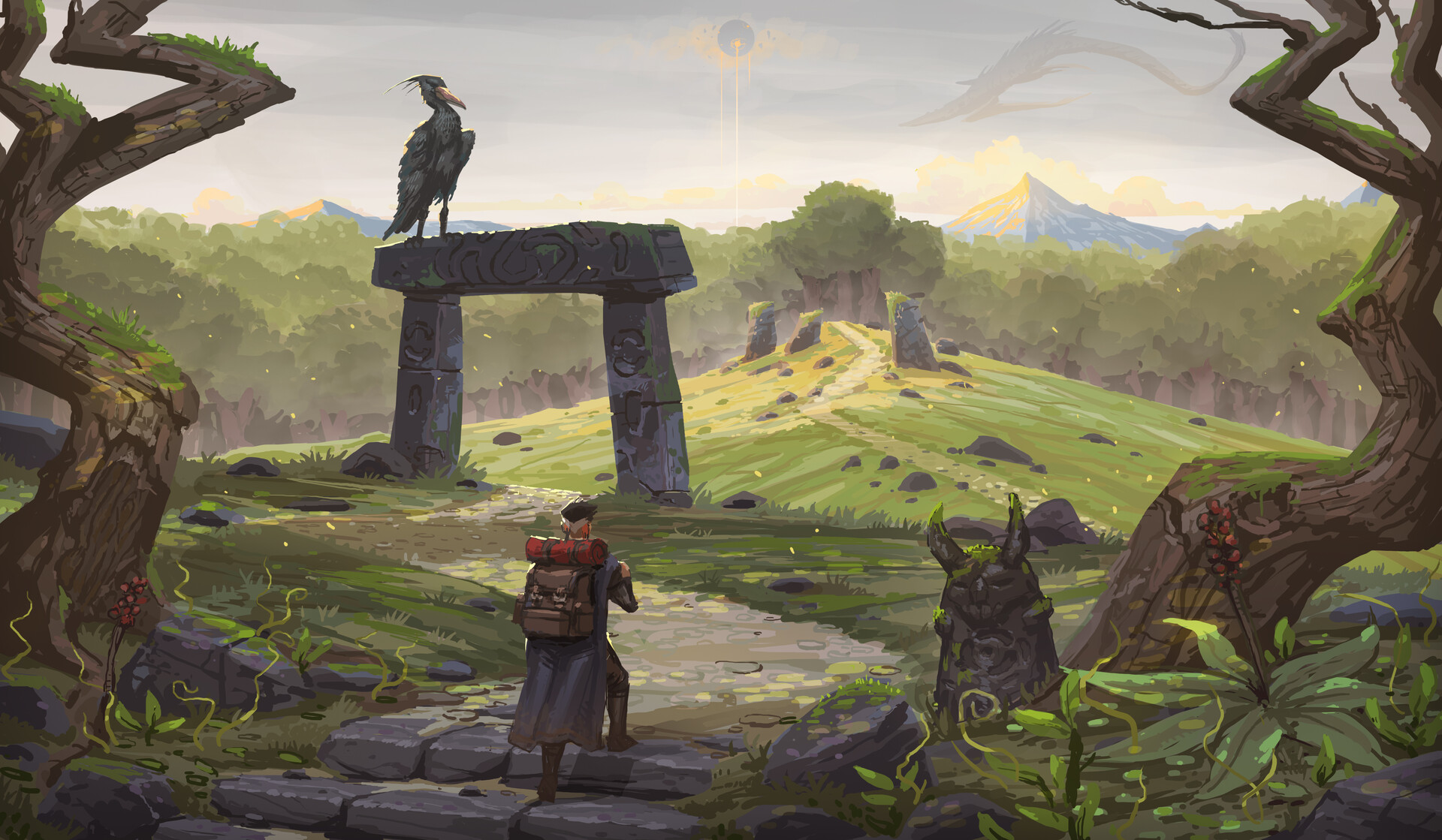

Way of the Serpent
Monks of the Way of the Serpent learn how to capitalize on keeping enemies close, on and off the battlefield. These monks constrict their foes like a snake, and can enter and exit melee as easily as a snake enters and exits its burrow.
The Way of the Serpent places emphasis on emulating the snake in every day life as well. Followers of this tradition are capable of emulating a serpent's guile to snatch the upper hand in a conversation, making them excellent infiltrators that hide in plain sight.
Constricting Vice
At 3rd level, you learn to ensnare your foes, crushing the life from them. You can choose to use your Dexterity modifier instead of your Strength modifier when you make a Strength (Athletics) check. Once per turn when you hit a creature with one of the attacks granted by your Flurry of Blows feature, you can choose to attempt to grapple the target.
When a creature you are grappling attempts and fails to break free of your grapple, you can spend 1 ki point as a reaction to constrict them, dealing bludgeoning damage equal to your Martial Arts die + your Dexterity modifier. The target is also restrained until the start of your next turn or until the grapple ends.
Ophidian Stance
At 6th level, you learn to adapt your body to the movements of the more advanced techniques of this style. You can move at full speed while you are prone, and you gain the benefits of the Disengage action while you are prone. You can stand up from prone without spending additional movement. When you are the target of an attack, you can use your reaction and spend 1 ki point to stand up from prone or drop prone before the attack roll is made.
Eyes of the Serpent
At 11th level, your reptilian ki infuses your eyes, sharpening your vision and causing your pupils to become snake-like slits. You gain darkvision out to 60 feet, and your darkvision is not impeded by magical darkness. As an action, you can attempt to transfix a target that can see you, overpowering their senses with your mental influence. The target must make a Wisdom saving throw against your Ki save DC. If it fails, it is charmed by you until the start of your next turn. You can use this feature on a creature who failed its saving throw against this effect in the previous round as a bonus action on your next turn. A creature who succeeds on its saving throw is immune to the effect to this feature for 1 minute.
Additionally, when you make a Charisma ability check or Wisdom (Insight) check to socially interact with another creature, you may use your reaction to attempt to charm them in the same way, potentially granting advantage on the triggering check.
Medusa's Gaze
By 17th level, you have learned to emulate the gaze of one of the most infamous serpentine creatures. When you hit a creature charmed by you with an unarmed strike, you can spend 2 ki points to force them to make a Constitution saving throw. If they fail, they are paralyzed until the end of their next turn.
If you critically hit the target, you may spend 3 ki points to petrify the target instead. You cast the flesh to stone spell on the target without any components, however your eyes flash with the malevolent gaze of the medusa. The target has disadvantage on their saving throws to avoid this petrification if they are grappled by you.


Way of the Still Tide
Monks that follow the Way of the Still Tide believe that magic is not meant to be used lightly. Some monasteries of this order are religious in nature, acting on behalf of gods of magic such as Mystra, Icae, Wee Jas or Vecna. Others are secular in nature, but respect the power that magic holds.
Regardless of their possible faiths, these monastaries see magic as a mighty current that could overflow if left unchecked, and safeguard against the misuse of magic, from people and monster alike. Followers of the way of the Still Tide refrain from traditional spellcraft, relying on their inner cultivation to produce wondrous effects.
Insights of the Tide
Starting when you choose this tradition at 3rd level, you learn some insights from the floes of magic itself. You gain the following benefits:
Read the Waters. You can use your Wisdom in place of your Intelligence when you make a Intelligence (Arcana) check. Additionally, you can expend 1 ki to cast detect magic.
Ripples of Magic. When you succeed on a saving throw against a magical effect that originated from a creature you can see within 30 feet of you, you can use your reaction to spend 1 ki to redirect the residual magic. That creature must make a Charisma saving throw. On a failed save, the creature takes force damage equal to your Martial Arts die plus your Wisdom modifier.
Calm the Waves
At 6th level, you learn to use your ki to still the flow of magic. When a creature within your reach begins casting a spell, you can use your reaction to make an unarmed strike against the target. If the attack hits, the target takes damage as normal, and you can expend 1 ki point to force that creature to make a Charisma saving throw or suffer one of the following effects (your choice).
Dam Magic. The target loses their lowest level spell slot. If they have no remaining spell slots, they take force damage equal to your Martial Arts die plus your Wisdom modifier.
Disrupt Magic. The target has disadvantage on saving throws to maintain concentration on the triggering spell.
Still Magic. If the spell requires an attack roll, it is made with disadvantage. If the spell requires a saving throw, it is made with advantage.
Complete Stillness
Beginning at 11th level, your mastery of your own body extends to how you interact with the flow of magic. You can use your Stillness of Mind feature to repeat a saving throw against one magical effect afflicting you. You suffer no consequences (such as taking damage) for failing this saving throw. Once you end a magical effect due to this feature, you cannot use it again until you complete a short or long rest.
Party Cohesion
Before playing a monk of this tradition, talk with your group about how an anti-magic monk will affect party dynamics. Remember to be courteous to your fellow players and avoid making a character so strict they can't function with others!
Perfect Placidity
At 17th level, you master the art of controlling the flow of magic in other creatures. You can use your Calm the Waves feature whenever a creature uses a magical effect, and it causes the following additional effects if the creature fails its saving throw.
Dam Magic. You regain hit points equal to twice the level of the spell. If the effect was not a spell, you gain hit points equal to the challenge rating or level of the creature it originated from (whichever is higher). If this healing would go over your maximum hit points, you gain the remainder as temporary hit points.
Disrupt Magic. The target has disadvantage on Constitution saving throws for 1 minute. The target must repeat their saving throw at the end of each turn, ending this extra effect on a success.
Still Magic. The effect's range is halved. If the effect has an area of effect, each measurement in the area calculation is halved for the duration.



Way of the Sun Soul
Monks of the Way of the Sun Soul learn to channel their life energy into searing bolts of light. They teach that meditation can unlock the ability to unleash the indomitable light shed by the soul of every living creature.
Luminous Soul
Starting when you choose this tradition at 3rd level, you emit a radiant light that comes from your very soul. You shed bright light in a 10-foot radius and dim light for an additional 10 feet. You can extinguish or restore the light as a bonus action. The radius of both the bright and dim light increases by 5 feet when your unarmored movement increases, as shown in the Monk table.
When you reach 10th level, this light becomes sunlight.
Radiant Arts
Also at 3rd level, you learn techniques to utilize your radiant soul. You gain the following features.
Solar Flare. When you are targeted with an attack by a creature within the bright light of your Luminous Soul feature, you can use your reaction to force them to make a Constitution saving throw against your ki save DC or make the attack at disadvantage as your inner light flares up. A creature who is immune to the blinded condition automatically succeeds.
You can use this feature a number of times equal to your Wisdom modifier (a minimum of once), and you regain all expended uses when you finish a long rest. While you have no uses available, you can spend 1 ki point to use this feature again.
Sun Bolt. You gain a new attack option. This special attack is a ranged spell attack with a range of 30 feet, and counts as an unarmed strike for the purposes of other features. You can choose to add Wisdom, instead of Strength or Dexterity, to its attack and damage rolls, and it deals radiant damage.
The range of this attack increases by 5 feet when your unarmored movement increases, as shown in the Monk table.
Searing Arc Strike
At 6th level, you gain the ability to channel your ki into searing waves of energy. You can spend 2 ki points to produce a blinding flash of light in either a 15-foot cone or a 30-foot line that is 5 feet wide (your choice) as a bonus action. Each creature within the area must make a Constitution saving throw against your ki save DC or take 3d6 radiant damage and become blinded until the start of your next turn. A creature who succeeds takes half as much damage and is not blinded.
You can spend additional ki points to make a brighter flash. Each additional ki point you spend increases the damage by 1d6 and range by 5 feet if it is a cone or extends its length 10 feet if it is a line. The maximum number of ki points that you can spend on a Searing Arc Strike equals half of your monk level.
Searing Sunburst
At 11th level, you gain the ability to create an orb of light that erupts into a devastating explosion. When you take the attack action, you can forgo all of your attacks to magically create an orb and hurl it at a point you choose within 150 feet, where it erupts into a sphere of radiant light for a brief, deadly instant.
Each creature in that 20-foot radius sphere must succeed on a Constitution saving throw against your ki save DC or take radiant damage equal to two rolls of your Martial Arts die. A creature doesn't need to make the save if the creature is behind total cover that is opaque.
You can increase the sphere’s damage by spending ki points. Each point you spend, to a maximum of 3, increases the damage by two dice.
Sun Shield
By 17th level, the light that emenates from your soul shelters your allies and sears your foes. If a creature hits another creature that's within the bright light from your Luminous Soul feature, you can use your reaction to deal radiant damage to the attacking creature. The radiant damage equals a roll of your Martial Arts die + your Wisdom modifier.


Way of the Four Elements
You follow a monastic tradition that teaches you to harness the elements. When you focus your ki, you can align yourself with the forces of creation and bend the four elements to your will, using them as an extension of your body. Some members of this tradition dedicate themselves to a single element, but others weave the elements together.
Many monks of this tradition tattoo their bodies with representations of their ki powers, commonly imagined as coiling dragons, but also as phoenixes, plants, mountains, fish, and cresting waves.
Spells not found in the Player's Handbook are marked, and can be found in the following sources according to the table below:
BD = Blazing Dawn
COFSA = The Compendium of Forgotten Secrets: Awakening
COW = Codex of Waves
EE = Elemental Evil's Player Copmpanion
M4 = Mashiro's Monstrous Manual of Magic
Initiate of the Way
When you choose this tradition at 3rd level, you learn how to manipulate the four elements in subtle ways. You learn two of the following cantrips: control flames EE, gust EE, mold
earth EE, or shape water EE. You learn two additional cantrips from this list at 6th level.
At 11th level, you learn two of the following cantrips: aquabolt COW, magic stone EE, produce flame, or
thunderclap EE. You learn two additional cantrips from this list at 17th level.
Wisdom is your spellcasting ability for these spells.
Disciple of the Elements
At 3rd level, you learn magical disciplines that harness the power of the four elements. Some disciplines require you to spend ki points when you use them.
You learn two elemental disciplines of your choice, which are detailed in the elemental disciplines sections below. You learn two additional elemental disciplines of your choice at 6th, 11th, and 17th level.
Whenever you learn a new elemental discipline, you can also replace one elemental discipline that you already know with a different discipline.
When you use your action to use an elemental discipline or cast a cantrip through your Initiate of the Way feature, you can make one unarmed strike as a bonus action, or you can use your Flurry of Blows.
Casting Elemental Spells. Some elemental disciplines allow you to cast spells. See chapter 10 of the Player's Handbook for the general rules of spellcasting. To cast one of these spells, you use its casting time and other rules, but you don't need to provide material components for it. When you cast a spell with a discipline, it is cast at the spell’s lowest level unless otherwise specified.
Once you reach 5th level in this class, you can spend additional ki points to increase the level of an elemental discipline spell that you cast, provided that the spell has an enhanced effect at a higher level, as burning hands does. The spell’s level increases by 1 for each additional ki point you spend. For example, if you are a 5th-level monk and use Sweeping Cinder Strike to cast burning hands, you can spend 2 ki points to cast it as a 2nd-level spell (the discipline’s base cost of 1 ki point plus 1).
The maximum number of ki points (its base ki point cost plus any additional points) that you can spend on the spell is 2, unless a discipline specifies otherwise. This maximum increases to 3 at 9th level, 4 at 13th level, and 5 at 17th level.
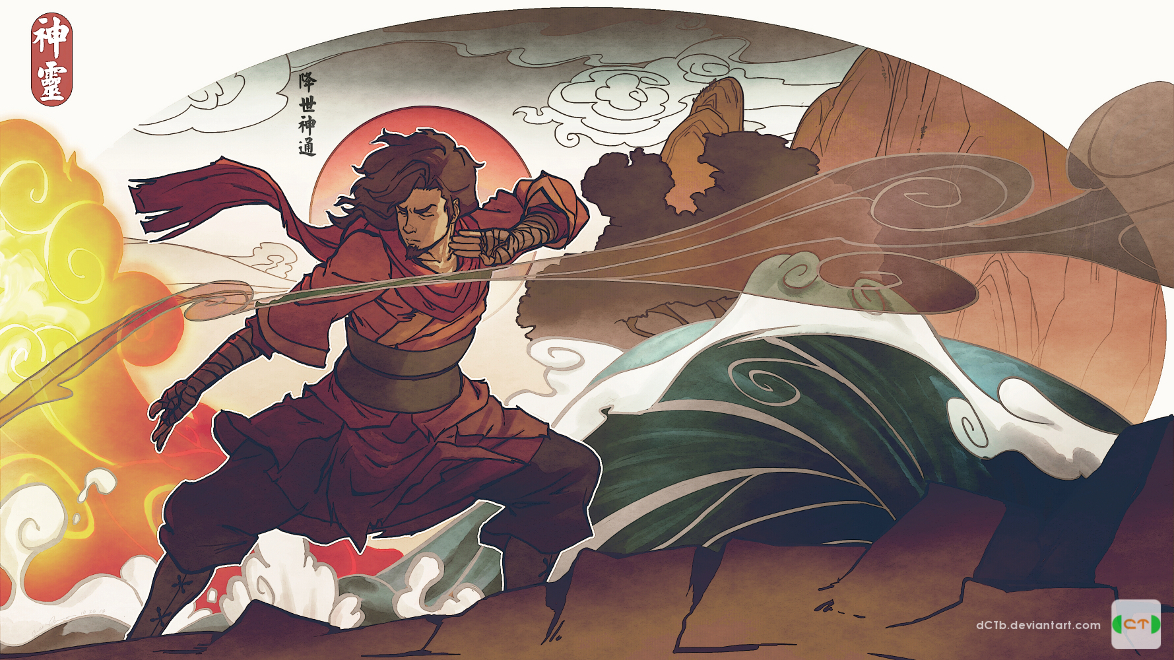

3rd Level Elemental Disciplines
Starting at 3rd level, you can learn the following disciplines:
Become the Teapot. You roll with the incoming energy, attuning to element, becoming it. You can spend 1 ki point to cast absorb elements EE.
Effortless Step. The air around you works in unison with your movements, rising you up as you jump. Your jump height and distance are doubled (quadrupled with Step of the Wind) and you gain advantage on Strength (Athletics) checks related to jumping.
Enduring Mountain Stance. Your body and mind becomes as rigid and unyielding as the ground below you. Your ki roots your feet into the ground and you become immovable. When you use the Dodge action, you cannot be moved, pushed, grappled, frightened, or knocked prone against your will until the start of your next turn. You must be standing on the ground to use this ability.
Fangs of the Fire Snake. Your limbs become enveloped in roaring gouts of flame. When you make an unarmed attack on your turn, you can choose to strike out tendrils of flames which stretch out beyond your normal reach. Your reach increases by 5 feet for that attack, and it deals fire damage instead of bludgeoning damage. If the attack hits you can spend 1 ki point to deal an extra 1d10 fire damage.
Fang of the Frost Wolf. You summon a shard of razor-sharp ice and fling it at your foe. You can spend 1 ki point to cast ice knife EE.
Fist of Four Thunders. You slam your fists together in front of you, causing a thunderous boom that blows away everything around you. You can spend 1 ki point to cast thunderwave.
Fist of Unbroken Air. You summon a swirling wind and concentrate it around your fist. When you make an unarmed attack on your turn, you can choose to strike out condensed bursts of air which stretch out beyond your normal reach. Your reach increases by 10 feet for that attack. If the attack hits you can spend 1 ki point to force the target to make a Strength saving throw or be pushed back 10 feet and be knocked prone.
Golden Snake's Icy Path. Whenever you take the Dash action, until the end of your turn for any movement you make along a surface you can leave a trail of slippery ice. This ice counts as difficult terrain and lasts until the start of your next turn.
Mote of the Sun. Your ki manifests as dazzling motes of light. You can spend 1 ki point to cast sunmotes BD.
Reef Shark's Splash. You swing your open palm in a horizontal motion and conjure a wave to strike your foes. You can spend 1 ki point to cast cresting waves COW.
Rumbling Badger. You shake the ground, causing a tremor that knocks over your foes. You can spend 1 ki point to cast earth tremor EE.
Rush of the Gale Spirits. You send a blast of air outward with a thrust of your open palm. You can spend 2 ki points to cast gust of wind.
Shape the Raincloud. You can spend 1 ki point to cast create or destroy water.
Sweeping Cinder Strike. With a wide sweeping gesture, you summon forth a barrage of hot cinders. You can spend 1 ki point to cast burning hands.
Water Whip. You summon a long, rubbery whip of pure water that you grip by one end. You can spend 1 ki point as a bonus action to create a whip of water that shoves and pulls a creature to unbalance it. A creature that you can see that is within 30 feet of you must make a Dexterity saving throw. On a failed save, the creature takes bludgeoning damage equal to your Martial Arts die + your Wisdom modifier, plus an extra 1d10 bludgeoning damage for each additional ki point you spend, and you can either knock it prone or pull it up to 25 feet closer to you. On a successful save, the creature takes half as much damage, and you don't pull it or knock it prone. You can’t use Water Whip and cast a spell during the same turn.
6th Level Elemental Disciplines
A Leaf on the Wind. A powerful wind rises up to catch you as you fall. Your Slow Fall ability no longer requires a reaction to use, and instead you may use it automatically whenever you are conscious and not incapacitated, and it negates all falling damage regardless of distance. When you use the Slow Fall ability, you may also glide along the air to move 5 feet in any horizontal direction for every 5 feet that you fall.
Burning Ember Flourish. You reach out with your ki to snuff out a source of fire, causing it to go out with a bang or to sputter black smoke. You can spend 2 ki points to cast pyrotechnics EE.
Crushing Hand of the Mountain. You focus your strength into your outstretched fist, summoning a hand of earth from the ground. You can spend 2 ki points to cast maximilian's earthen grasp EE.
Curtain of Unyielding Wind. You let out a fierce howl as a mighty wind begins swirling around you. You can spend 2 ki points to cast warding wind EE.
Gong of the Summit. You strike the air as if it were a gong. You can spend 2 ki points to cast shatter.
Hatchling's Flame. You focus your ki into a torrent of fire that streaks away from you. You can spend 2 ki points to cast aganazzar's scorcher EE.
Impenetrable Iron Tortoise Shell. You summon an earthen barrier to defend yourself or an ally. As a reaction, you may spend 2 ki points to use your Deflect Missiles or Turn the Tide ability against an attack you can see within 30 feet of you. Any damage not prevented by this ability is taken by the original target of the attack. If you reduce the damage to 0, you can’t make an attack as a reaction.
Leaping Carp's Ascent. You swing your open palm in a rising motion and conjure a wave to strike your foes. You can spend 2 ki points to cast geyser COW.
Patient Badger Listens. You reach out with your ki to the ground beneath you. You can spend 2 ki points as a bonus action to gain tremorsense with a range of 30 feet and a burrow speed equal to half of your walking speed for up to 1 minute. Your movement leaves behind a tunnel that remains for as long as this ability is active, and then collapses.
Red Dragon's Claws. Rays of fire spring from your outstretched hand to sear your foes. You can spend 2 ki points to cast scorching ray.
Rising Cyclone Strike. You let out a booming bellow that sweeps your foe of their feet. You can spend 2 ki points to cast skyward rise COFSA.
Swarming Ice Rabbit. A flurry of magic snowballs erupts from a point you choose within range. You can spend 2 ki points to cast snilloc's snowball swarm EE.
11th Level Elemental Disciplines
Starting at 11th level, you can learn the following disciplines:
Dance of Three Ways. You summon six spheres of earth from the ground, suspend them in the air around you, and ignite them with your fiery ki. With a thought, you launch these blazing meteors at your foe. You can spend 3 ki points to cast melf's minute meteors EE.
Earth Reaches for Sky. Focusing your strength with a deep, rumbling shout, you swing your arms up high, causing an eruption of churned earth and stone that engulfs your foes. You can spend 3 ki points to cast erupting earth EE.
Eternal Mountain Defense. Your body hardens to stone, nearly impervious to weapons. You can spend 4 ki points to cast stoneskin, targeting yourself.
Flames of the Phoenix. With a hand motion, you conjure a tiny bead of burning energy. You can spend 3 ki points to cast fireball.
Fist of the Elements. The elements swirl around your weapon. You can spend 3 ki points to cast elemental weapon, choosing from only the damage types cold, fire, or thunder. Your unarmed strikes count as a weapon for the purposes of this discipline.
Hua's Water Prison. You conjure up a sphere of water that engulfs and imprisons foes that touch its surface. You can spend 4 ki to cast watery sphere EE.
Mist Stance. A swirling mist envelopes your body and you merge with it, becoming a cloud. You can spend 3 ki points to cast gaseous form, targeting yourself.
One with the Tides. You reach out with your ki and become one with water. You spend 2 ki points as an action to gain underwater adaptations for 8 hours. While this ability is active, you can breath normally underwater, you gain a swim speed equal to your walking speed, and you gain blindsight with a radius of 60 feet while underwater.
Rain of the Frigid Glacier. You cool the air in the skies above you, condensing the water droplets into freezing rain and sleet. You can spend 3 ki points to cast sleet storm.
Raise the Troubled Earth. You stir the earth around you into action, summoning a wall of sand to serve as your barricade. You can spend 3 ki to cast wall of sand EE.
Raise the Still Waters. Though water can give way easily, it can just as easily offer great resistance. You can spend 3 ki to cast wall of water EE.
Ride the Wind. You summon a mighty wind that envelopes your body, sweeping you to where you want to go. You spend 3 ki points to cast fly, targeting yourself, except your fly speed is equal to your movement speed.
River of Hungry Flame. You sweep your hands upward, causing a wall of blazing hot fire to leap up from the ground. You can spend 4 ki points to cast wall of fire.
Sea's Fury. You conjure up a mighty wave of water that crashes down on your foes. You can spend 3 ki to cast tidal wave EE.
Shape of the Flowing River. You touch a body of water with your ki, coaxing it to change its form. You can spend 4 ki points to cast control water.
Tailwind of the Roc. You whip the air into a frenzy with your ki. You can spend 3 ki to cast wind wall.
17th Level Elemental Disciplines
Starting at 17th level, you can learn the following disciplines:
Avatar of the Elements. As an ultimate display of your mastery of the elements, you can spend 5 ki as an action to have the elements of earth, fire, air, and water form a protective sphere around your body, gaining multiple benefits for 1 minute. While this ability is active, you have resistance to bludgeoning, piercing, slashing, cold, fire, lightning, and thunder damage. You also gain a burrow, fly, and swim speed equal to your movement speed. Lastly, you can use any of the following abilities as a bonus action:
- You create a small earthquake on the ground in a 15-foot radius around you. Each creature in that area must make a Dexterity saving throw. On a failed save, a creature takes 1d6 bludgeoning damage and is knocked prone.
- You create a line of fire 15 feet long and 5 feet wide extending from you in a direction you choose. Each creature in the line must make a Dexterity saving throw. A creature takes 3d6 fire damage on a failed save, or half as much damage on a successful one.
- You create a 15-foot cube of swirling wind centered on a point you can see within 60 feet of you. Each creature in that area must make a Constitution saving throw. A creature takes 1d10 bludgeoning damage on a failed save, or half as much damage on a successful one. If a Large or smaller creature fails the save, that creature is also pushed up to 10 feet away from the center of the cube.
- You create a 15-foot cone of ice shards extending from your outstretched hand in a direction you choose. Each creature in the cone must make a Constitution save throw. A creature takes 2d6 cold damage on a failed save, or half as much damage on a successful one. A creature that fails its save against this effect has its speed halved until the start of your next turn.
Breath of Winter. You inhale deeply and then exhale, blasting a cone of frigid air out in front of you that freezes everything in its path. You can spend 5 ki points to cast cone of cold.
Eyes of Fire. Your foes may try to hide in darkness, but their ki lights up like a torch to you. You may cast see invisibility without expending any ki. In addition, while under the effects of see invisibility, you may spend 2 ki points as a bonus action to gain truesight until the end of your next turn.
Eye of the Hurricane. You stretch out your ki to embrace the winds. You can spend 5 ki points to cast control winds EE.
Gaze of the Yeti. You fix a creature with a stare that chills even the most enflamed of spirits. You can spend 5 ki to cast chilling gaze M4.
Mold the Mountain. You master the many forms that earth may take. You can spend 5 ki to cast transmute rock EE.
Swirling Crab's Revenge. Your ki manifests as a swirling pool of water, smashing and pulling your foes towards its center. You can spend 5 ki points to cast maelstrom EE.
Wave of Rolling Earth. The ground shakes and emits a low rumble as a wall of stone erupts up into being. You can spend 5 ki points to cast wall of stone.
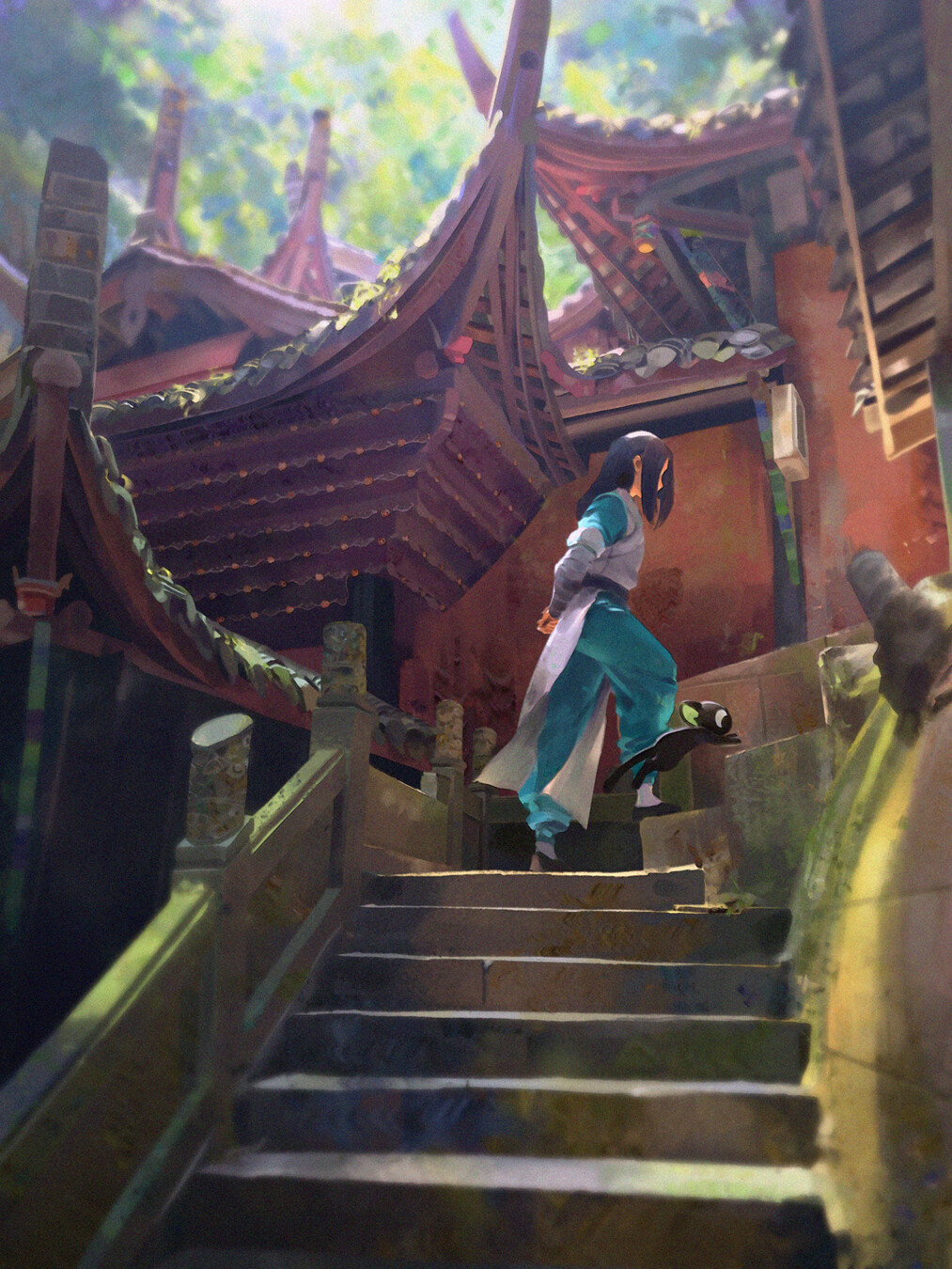
The Monk
A revision of the Monk class for the world's greatest roleplaying game! The revised monk
is redesigned to have less polarizing abilities, while bringing the class up to par with the
other options available simultaneously. The Revised Monk works with all official monk subclasses.
Design Credit: @R10+#1546 on Discord, /u/Sensei_Z, /u/Darkshadlegend
Document Credit: /u/Sensei_Z
Subclass Concept Credit:
Page 8 - Keith Baker - Argent Fist
Page 10 - Desmon Arnold - Spiral Body
Page 12 - dgscott - Long Heal
Page 13 - Genuine - Noble Serpent
Artist Credits:
Page 1 - Jung Wook Choi - M Fighter, 2011
Page 1 - Jose Vega - Hilltop Monastery
Pages 2 & 3 - Alex Vanderlinde - The Summit
Pages 4 - Phouc Quan - The Flying Monestary
Pages 6 - G-host Lee - Elsha of the Infinite
Page 7 - Steve Argyle - Monastery Swiftspear
Page 8 - Howard Lyon - Serra Ascendant
Page 9 - Chris Rallis - Dragon Whisperer
Page 10 - Sung Uk Kim - Kamina
Page 12 - Sebastian Kowell - Ark Ice Caves
Page 12 - Beau Lamb - The Glow
Page 13 - Jarold Sng - Snake Temple
Page 14 - Jason A Engle - Student of Ojutai
Page 15 - Johannes Voss - Soulfire Grand Master
Page 16 - dCTb - Avatar State
Back - Aliya Chen - 罗小黑战记 Luo Xiaohei